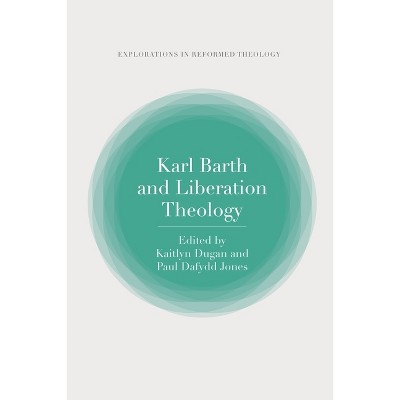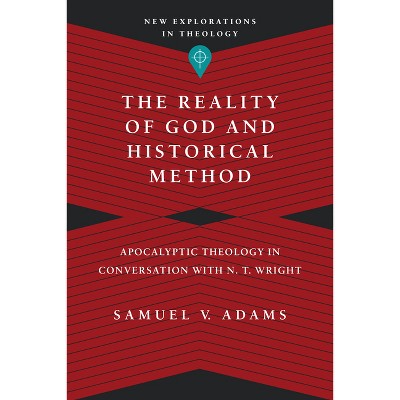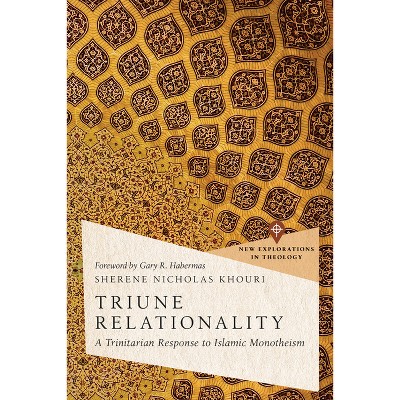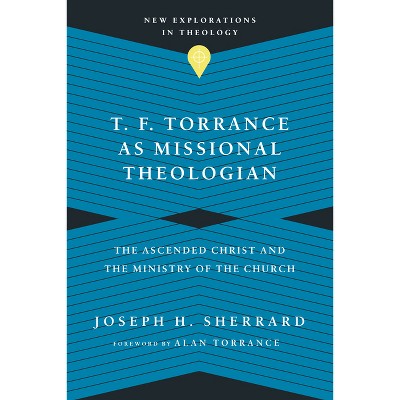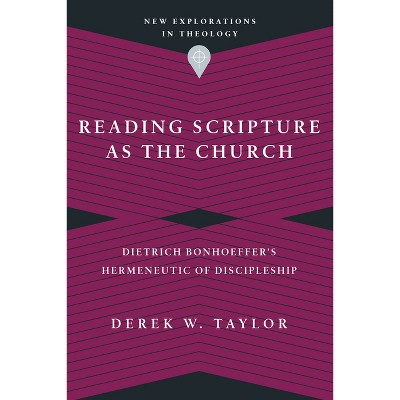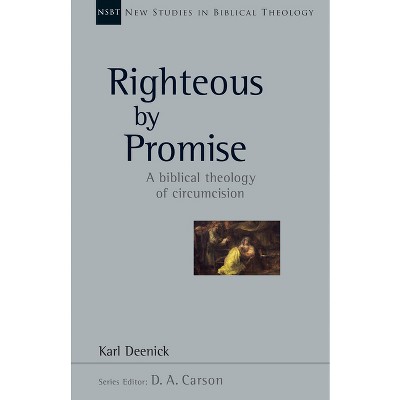Karl Barth's Infralapsarian Theology - (New Explorations in Theology) by Shao Kai Tseng (Paperback)

About this item
Highlights
- Theologians have long assumed that Karl Barth's doctrine of election is supralapsarian.Challenging decades of scholarship, Shao Kai Tseng argues that despite Barth's stated favor of supralapsarianism, his mature lapsarian theology is complex and dialectical, critically reappropriating both supra- and infralapsarian patterns of thinking.
- About the Author: Shao Kai Tseng (DPhil, University of Oxford) is assistant professor of systematic theology at China Evangelical Seminary in Taipei, Taiwan.
- 319 Pages
- Religion + Beliefs, Christian Theology
- Series Name: New Explorations in Theology
Description
About the Book
Scholars of Karl Barth's theology have been unanimous in labeling him a supralapsarian, largely because Barth identifies himself as such. In this groundbreaking and thoroughly researched work, Shao Kai Tseng argues that Barth was actually an infralapsarian, bringing Barth into conversation with recent studies in Puritan theology.
Book Synopsis
Theologians have long assumed that Karl Barth's doctrine of election is supralapsarian.
Challenging decades of scholarship, Shao Kai Tseng argues that despite Barth's stated favor of supralapsarianism, his mature lapsarian theology is complex and dialectical, critically reappropriating both supra- and infralapsarian patterns of thinking. Barth can be described as basically infralapsarian because he sees the object of election as fallen humankind and understands the incarnation as God's act of taking on human nature in its condition of fallenness.
In this New Explorations in Theology volume, Tseng shows that most of Barth's Reformed critics have not understood his doctrine of election accurately enough to recognize his affinity to infralapsarianism and, conversely, that most Barthians have not understood Reformed-orthodox formulations of election with sufficient accuracy in their disagreement with the tradition. Karl Barth's Infralapsarian Theology offers a clear understanding of both the historic Lapsarian Controversy and Barth's distinct form of lapsarianism, providing a charitable dialogue partner to aid mutual understanding between Barth and evangelicals.
Featuring new monographs with cutting-edge research, New Explorations in Theology provides a platform for constructive, creative work in the areas of systematic, historical, philosophical, biblical, and practical theology.
Review Quotes
"Dr. Tseng's real strength in this book is in presenting Barth as a unique and creative theologian who did not self-identify with pre-described designations, but carved out his own theology by ingeniously integrating the fruit of his substantial research. Indeed, as Tseng craftfully outlines, with impressive attention to detail, Barth's theological development, whether to be described as turns or shifts in emphasis, emerged over many years, and is sign-posted by significant publications. This is a fascinating analysis for those already immersed in Barth's theology and who appreciate a detailed and thorough investigation."
--John Lewis, Evangelical Review of Theology, Vol. 41, No. 2, April 2017"Was God's original will to enter into covenant relations with his creatures an act that took place because of the fall or irrespective of the fall? The answer that this significant study provides is that it is both, with more weight attached to the latter view. Ordinarily one might wonder what the relevance of a study of Barth's supralapsarian and infralapsarian emphases might be both for Barth scholars and the church. In this carefully argued, well-researched and well-documented exploration of the development and implications of Barth's doctrines of election and Christology, Shao Kai Tseng demonstrates exactly why such a study is important. We learn exactly how Barth could forcefully present the power of God's grace by focusing on Jesus Christ as 'electing God and elected human, ' rather than on a decretum absolutum, while at the same time taking account of God's good creation as it is menaced by sin and death. Since God is really free as the one who loves within the immanent Trinity, we know that God's love of the world in election and incarnation is effective for all, just because God's self-determination to be for us is irrevocable as an action of love that corresponds perfectly with God's self-sufficient act of love in the freedom of the immanent Trinity. This is certainly a book that Barth scholars will want to read and discuss. But it is a book that will engage and inform all theologians who are concerned about how to understand God's love and freedom for us today in a way that does justice to both God's love and God's freedom."
--Paul D. Molnar, professor of systematic theology, St. John's University, Queens, NYAbout the Author
Shao Kai Tseng (DPhil, University of Oxford) is assistant professor of systematic theology at China Evangelical Seminary in Taipei, Taiwan. Previously he served as a pastor at Faith Chinese North American Baptist Church in his hometown of Vancouver, British Columbia.
Shipping details
Return details
Trending Poetry






